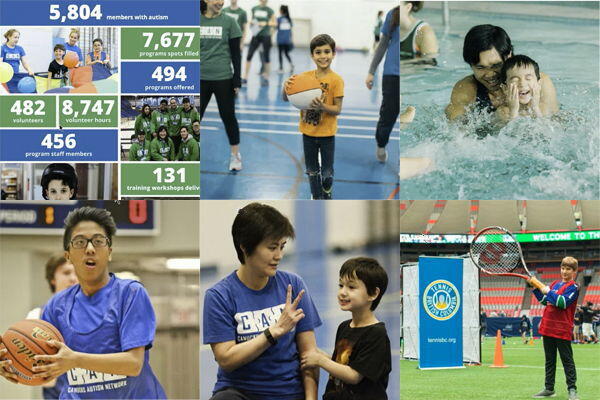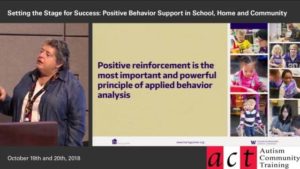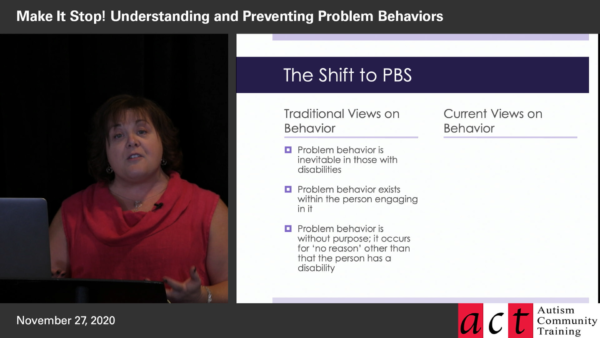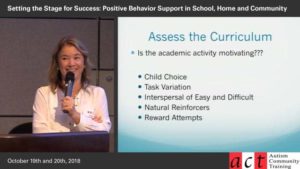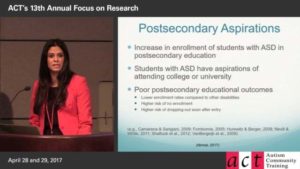Filmed at Setting the Stage for Success: Positive Behavior Support in School, Home and Community – October 19, 2018
Part of ACT’s Positive Behavior Support Learning Stream
Mariko Tachi and Noreen Dunn provide key components of culturally sensitive PBS, paired with personal and anecdotal examples. These include:
- Developing rapport informed by the family’s culture.
- Incorporating cultural beliefs, practices, and parenting practice into development of PBS.
- Incorporating the key stakeholder’s cultural beliefs when training for implementation.

Mariko Tachi, MEd, BCBA; Parbs Bains, MEd, BCBA; Noreen Dunn, MEd, BCBA
Mariko Tachi has her BCBA and a Masters in Special Education from UBC. She has been providing in-home intervention based in ABA for children diagnosed with autism and their families in the Lower Mainland for the past decade. Since 2015, she has been travelling to Japan to provide interventions to families and has presented numerous workshops.
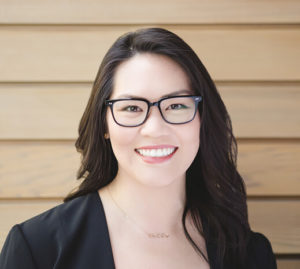

Part 1: Introduction – Need for Services in Increasingly Diverse Communities, Key Features of PBS with Families
Part 2: Collaborative Partnerships with Families
Part 3: Functional Assessment, Meaningful Lifestyle Outcomes, Multi-Component PBS Plan & Implementation Support
Part 4: Putting PBS into Practice, Learning about the Family’s Interaction and Communication Style
Part 5: Family Decision Making, Support Networks
Part 6: Child-Rearing Practices, Cultural Expectations, Roles and Responsibilities of Family Members
Community Resources:
- Umeed: Building Autism Awareness in the Punjabi Community
- ACT in Chinese
- ACT in Punjabi
- Parent Handbook in 9 languages
- MOSAIC Interpretation and Translation services
- Multicultural Liaison Workers
- Burnaby BACI Chinese autism parent support group

